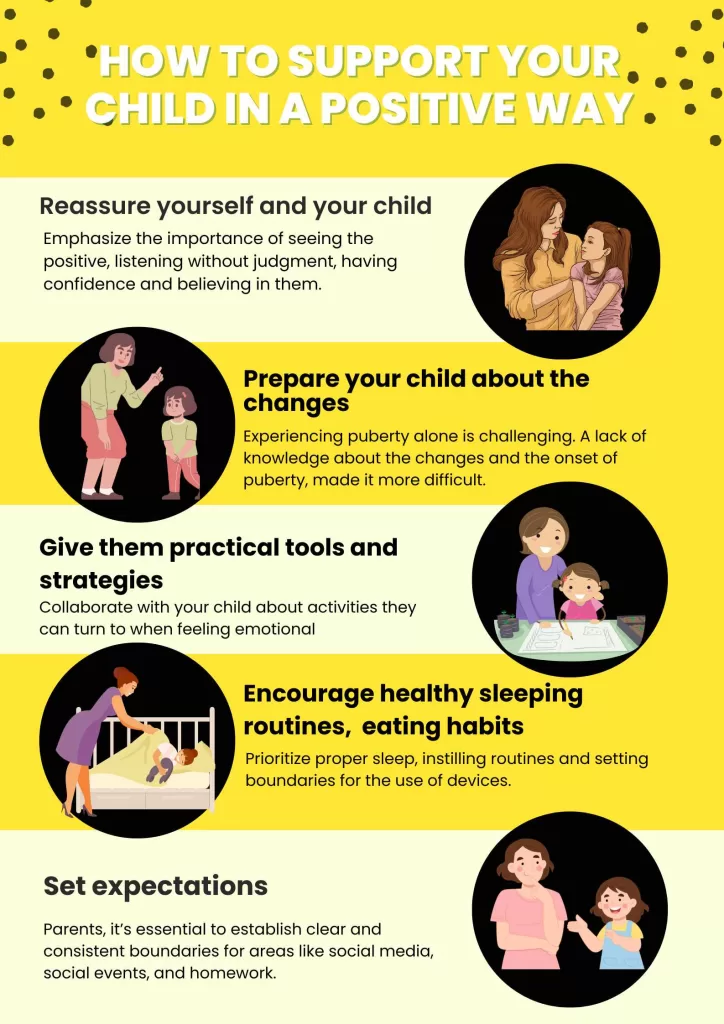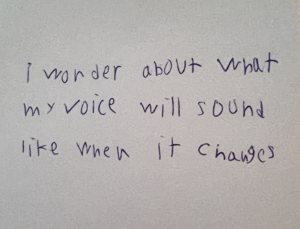Puberty is one of the biggest changes in our kids' life
A change in uniform, shoes, lunchbox, teacher, friends, timetable and perhaps a new school. This week all around Australia it’s a time of change for Aussie kids as they head back to school after a long summer holiday. We all cope with change in different ways and so do our kids.
Last term I asked some Year 6 students to write some ‘I wonder’ statements about changing and puberty.
This is what some of them said;
“I wonder if anybody will notice the changes in me when I go through puberty.”
“I wonder if my friends will change when I go through puberty.”
“I wonder when my body will start to change like my friends.”
“I wonder about what my voice will sound like when it changes.”
Puberty is a time of change. It is one of the biggest changes in our lives when you really think about it – physically, emotionally, mentally and socially. There’s a lot happening and often all at the same time. So how can you guide your child during puberty with so much change going on?
Here are 5 ways to support your child in a positive way about the changes that happen during puberty:
Reassure yourself and your child
While it might feel like a marathon lasting 3 to 8 years, it begins and finishes like a race. Puberty does end -it doesn’t last forever.
Affirming your child involves being realistic, taking interest in all aspects of their lives, and fostering connection and support. Emphasize the importance of seeing the positive, listening without judgment, having confidence and believing in them.
Prepare your child about the changes and what general order they will happen in
I experienced puberty earlier than my peers and it was challenging. I felt isolated, lonely and confused, thinking I was the only one going through it. A lack of knowledge about the changes and the onset of puberty, made it more difficult.
Give them practical tools and strategies to help them cope
Collaborate with your child about activities they can turn to when feeling emotional and in need of privacy. Whether that’s reading, listening to music, or jumping on the trampoline. Encourage them to find their own strategies. Consider establishing a ‘go-to’ or ‘code word’ for self-regulation, accompanied by actions they can take to calm themselves.
Respect their privacy and space. Support their puberty journey by purchasing items together like deodorant, period underwear, shower gels, or shavers. Spend time on a walk or date together every now and then to make them feel loved and special. I understand that some of these strategies will not work for your child but adapt these strategies to suit.
Encourage healthy sleeping routines, exercise and eating habits
Puberty triggers rapid changes in the body, impacting emotions. To foster a positive body image, avoid constant weight talk, comparisons, or body or food shaming. Model healthy eating habits instead.
Prioritize proper sleep, instilling routines and setting boundaries for the use of devices. Discuss exercise preferences, possibly engaging in activities together. Supportive communication and healthy lifestyle habits lay a foundation for a positive body image.
Set expectations
Parents, it’s essential to establish clear and consistent boundaries for areas like social media, social events, and homework. Collaborate with your children to negotiate and agree on these boundaries and consequences, fostering a sense of empowerment.
Lead by example with time limits, parental controls, and stay informed about social media. Try to avoid impulsively changing rules in moments of anger. This approach promotes mutual understanding and responsible decision-making, creating a positive environment for both parents and children.
My adult children are just gorgeous but puberty was hard and different for each of them.
So, take a big breath, try and get a snippet of time here and there, cry your eyes out, join a boxing class, go for a walk, say sorry often, tell your child that you love them and get support when you need it – because take it from me, you’re going to need it.
I thought at times that my children were going to turn out to be horrible humans because of some of the things that they said and did but they didn’t – quite the opposite in fact. So, as you journey through the twists and turns of puberty, know that the light will change, it will dim, sometimes go off and then it goes on again – bringing light to your life!








